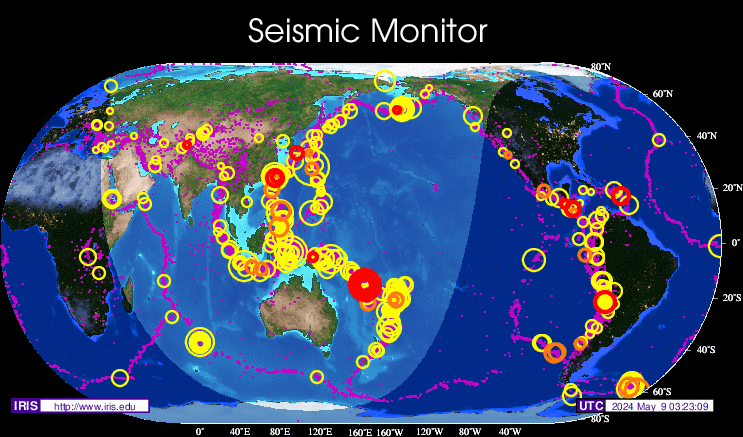Why this blog?
Until this moment I have been forced to listen while media and politicians alike have told me "what Canadians think". In all that time they never once asked.
This is just the voice of an ordinary Canadian yelling back at the radio -
"You don't speak for me."
email Kate
Goes to a private
mailserver in Europe.
I can't answer or use every tip, but all are appreciated!


Katewerk Art
Support SDA
Paypal:
Etransfers:
katewerk(at)sasktel.net
Not a registered charity.
I cannot issue tax receipts
Favourites/Resources
Instapundit
The Federalist
Powerline Blog
Babylon Bee
American Thinker
Legal Insurrection
Mark Steyn
American Greatness
Google Newspaper Archive
Pipeline Online
David Thompson
Podcasts
Steve Bannon's War Room
Scott Adams
Dark Horse
Michael Malice
Timcast
@Social
@Andy Ngo
@Cernovich
@Jack Posobeic
@IanMilesCheong
@AlinaChan
@YuriDeigin
@GlenGreenwald
@MattTaibbi
Support Our Advertisers

Sweetwater

Polar Bear Evolution

Email the Author

Pilgrim's Progress

How Not To Become A Millenial

Trump The Establishment
Wind Rain Temp

Seismic Map

What They Say About SDA
"Smalldeadanimals doesn't speak for the people of Saskatchewan" - Former Sask Premier Lorne Calvert
"I got so much traffic after your post my web host asked me to buy a larger traffic allowance." - Dr.Ross McKitrick
Holy hell, woman. When you send someone traffic, you send someone TRAFFIC.My hosting provider thought I was being DDoSed. - Sean McCormick
"The New York Times link to me yesterday [...] generated one-fifth of the traffic I normally get from a link from Small Dead Animals." - Kathy Shaidle
"You may be a nasty right winger, but you're not nasty all the time!" - Warren Kinsella
"Go back to collecting your welfare livelihood. - "Michael E. Zilkowsky


Cool. Thanks
I have a fascination for the Germans (and others) who immigrated into the “great wild east” for hundreds of years founding all sorts of towns, trades, etc.. in Russia and Eastern Europe from the early middle ages onwards.
A depressing consequence of the communists and Nazis was these communities were destroyed gutted, exterminated, or pushed out before and after WWII through no particular faults of their own other than being ethnically German.
Sad end but fascinating history.
Thanks Kate. My ancestors were Germans from Russia and the story is long and filled with sadness and Joy.
I have a second cousin who survived the Gulags and now lives in Germany. For those interested; Concordia University in Portland OR and the University of North Dakota have a lot of material.
In a period of my life I sought out and voraciously read many history books on Germans from Russia. Over time essentially every German male was slated for death. They weren’t allowed to leave but were eventually killed. They were sentenced for execution by tribunals that could render decisions without evidence. The stupid senseless brutality made me so angry I had to quit reading those books.
“Heimat” makes me think of the movies of Edgar Reitz. Man I love ’em.
I remember doing a paper for my cutural anthropology course on the Mennonites and Hutterites waves of immigration to Canada and the reasons for it. Likely a pretty good read if you can stomach the psychological revulsion ‘scar’ mentions.
As I recall the Mennonites were damn hard workers, literally your ‘salt of earth’ bread basket of the world types and the home cooking was bar none…the backs on which the Praries were built. As then and to a degree now they don’t get enough respect…
Cheers
Hans Rupprecht, Commander in Chief
1st Saint Nicolaas Army
Army Group “True North”
Looking forward to reading Ken(Kulak)’s book also.
We are gleening advice from that ‘Bosnian’ survivalist.
My hope is not in mankind. I consider myself a realist, not a pessimist.
The many personal accounts human tragedies of tyranny seem wasted on the current gen of conditioned zombies the state education centers turn out. I have read literally hundreds of these first hand accounts of the tyrannies that raged in Europe. It gets to you – particularly when you have a good grasp of history and current events seem like a rerun of past events.
“For those interested; Concordia University in Portland OR and the University of North Dakota have a lot of material” Melwilde
I have a BIL that asked me to research his German family that immigrated from Odessa Russia to North Dakota. He didn’t indicate that his family may have been part of a Colony. His family then moved north to the Big-Muddy in Saskatchewan…
Even the most casual student of the Thirty Years War (North European Plain) realizes that civilians were targeted long before WW1.
Most assume the only ones in peril from war, prior to WW1, were the troops…whole cities were depopulated….
There are 2 groups for German Russian Heritage. The American Heritage Society of Germans From Russia in Lincoln, Nebraska is the larger. The Germans From Russia Heritage Society in Bismarck, North Dakota is smaller and seems more interested in Black Sea Germans (Bessarabia, Ukraine, Crimea, and Caucasus).
Thanks Kate. I sometimes had to stop for a day or so while translating this book, as it was a little tough to read what these people went through. As I have mentioned in the past on a thread or two, my gpa left the Soviet Union when he could in 1926 as he knew the NKVD aka Cheka would come looking for him soon because of his wartime Red Cross hospital administration work and his post revolution, pre-Bolshevik coup municipal work. His two brothers stayed and died in the gulags, as did most of their sons.
Slap Shot, almost all of the German immigrants to Russia from the 1760s and on lived in groups of villages that were generally known as “colonies”. The villages where my wife’s and my ancestors lived were quite often adjacent to Lutheran or Catholic German settlements of a number of villages or “colonies”. I have a map made by a Dr. Karl Stump originally in the 1930s and updated to 1962 that shows settlements like this across all Russia.
scar @ 1:09, that was pretty much how it worked.
My understanding of this history was that the Russian czars actively recruited German and Jewish settlers to Russia. They realized these two groups were capable of building modern societies and that Russia could benefit. Prior to WW I these two groups were found to be leaders in their communities. Jewish records lamented the fact that inter-marriage between Jews and Germans threatened their culture.
Much of the resentment towards Jews in post WW I Germany was because of Jewish refugees repatriated from Russia. This resentment was also felt towards German refugees as well. Competing in small businesses against these refugees was difficult in a poor economic environment.